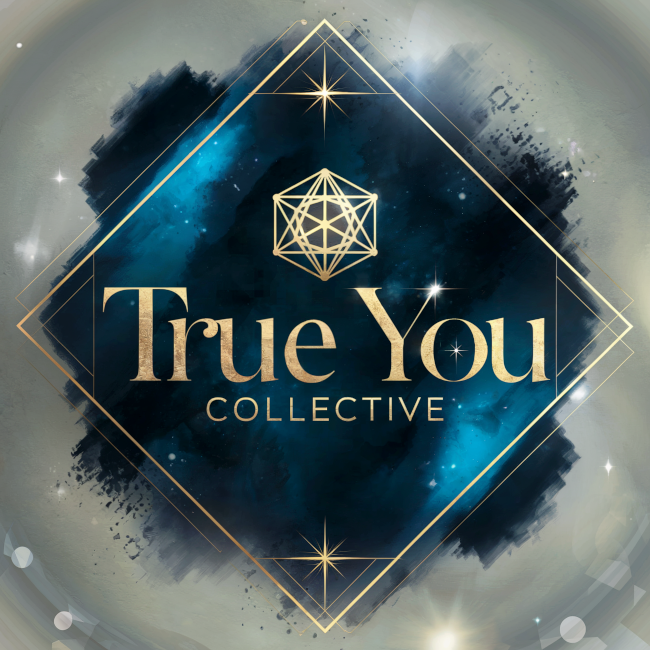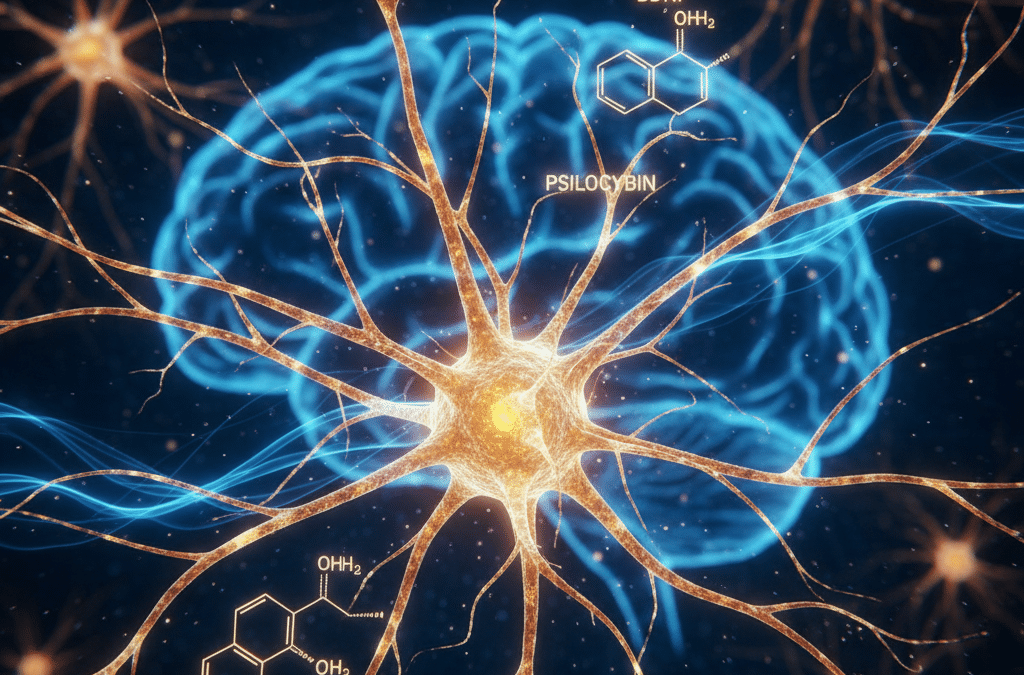When people talk about psilocybin, the active compound in “magic mushrooms,” they often focus on the trip. Some describe vivid colors, visions, or mystical encounters. Others face emotions they’ve avoided for years. And some even come away thinking “nothing much happened.”
Here’s the fascinating truth: whether your journey is big, small, or quiet, psilocybin is still at work in your body — all the way down to the cellular level.
🧠 Growing New Connections: Neuroplasticity in Action
Psilocybin is converted in the body into psilocin, which binds to 5-HT2A serotonin receptors in the brain. These receptors aren’t just about mood — they’re involved in learning, memory, and flexibility.
When psilocin activates these receptors, it sparks a cascade that boosts brain-derived neurotrophic factor (BDNF), a protein that helps neurons grow, repair, and connect.
On a cellular level, this looks like:
- 🌱 New dendritic branches growing on neurons (think: more branches on a tree).
- 🌉 New synapses forming between neurons (think: new bridges between towns).
- 🔄 Reinforced circuits that support healthier thought and emotional patterns.
💡 Even if your journey felt uneventful, your brain was still busy remodeling — like pruning and re-growing a healthier garden.
🌌 Resetting Stuck Patterns in the Brain
Many people with depression, anxiety, or chronic stress show overactivity in a brain network called the Default Mode Network (DMN) — the hub responsible for self-talk, rumination, and a sense of “ego.”
Psilocybin temporarily quiets this network and increases global connectivity — brain regions that normally don’t communicate start firing together.
This isn’t just “in your head.” On a cellular level, it reflects:
- Loosening of rigid patterns
- Fresh pathways opening up
- A chance for new ways of thinking and feeling to emerge
This “reset” is why many describe psilocybin as giving their mind a fresh start.
🌿 Calming Inflammation
Emerging studies suggest that psychedelics may have anti-inflammatory effects. At the cellular and immune level, psilocybin appears to reduce certain pro-inflammatory markers.
Why does this matter? Because chronic stress, grief, and depression aren’t just emotional — they’re linked to inflammation in the body.
This cellular calming could explain why some people notice not just emotional relief, but also physical lightness or decreased pain after psilocybin.
💠 Softening Fear and Stress Circuits
Psilocybin also affects the amygdala, the brain’s fear-processing center. Research shows it decreases overreactivity in this area, while strengthening its connection to the prefrontal cortex (the part of the brain that regulates and calms).
On a cellular level, this means:
- Fewer stress hormones flooding the body
- Reduced “fight-or-flight” firing in fear circuits
- A greater sense of calm, even after the journey ends
✨ Why Experiences Differ but Healing Still Happens
Here’s the beauty of psilocybin: the subjective journey can look wildly different from one person to another, but the cellular mechanisms are consistent.
- One person may feel like they merged with the universe.
- Another may face uncomfortable emotions.
- Another may see only colors or darkness.
Different surface experiences — but beneath it all, their neurons are sprouting, synapses are forming, inflammation is lowering, and fear circuits are rebalancing.
💡 Healing doesn’t depend on whether the “trip” felt mystical or mundane. The body remembers either way.
🌿 Supporting the Body After the Journey
Because psilocybin primes the brain for change, what you do afterward matters. Integration practices help these cellular changes “stick.” This can include:
- Sound and vibration therapies (to help the nervous system stay regulated)
- Breathwork (to reinforce calm and vagal tone)
- Journaling and reflection (to give new neural connections meaning)
- Time in nature (to anchor perspective and calm inflammation)
This is why psychedelic research always pairs the medicine with preparation and integration support.
🌌 The Takeaway
Psilocybin doesn’t just create an altered state of mind. It sparks altered states of biology.
It helps the brain grow new connections, calms inflammation, rebalances fear circuits, and resets stuck patterns — even when your experience feels subtle or uneventful.
💙✨ The trip is just the doorway. The healing continues long after, in the quiet language of your cells.

